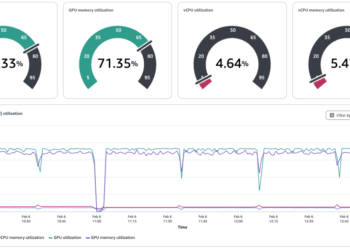Extremely expert staff can be clever to grasp synthetic intelligence (AI) instruments now to realize a aggressive edge within the job market, a brand new Otago examine exhibits.
The analysis, revealed in The Scottish Journal of Political Economic system, finds AI-based schooling will higher put together extremely expert staff for the altering job market.
Corresponding creator Dr Murat Ungor, from the Division of Economics, says as AI and automation grow to be extra subtle, the applied sciences will more and more require human companions who can perceive, use and handle them successfully.
Though many earlier research have explored how automation replaces duties sometimes finished by low-skilled labour, the Otago researchers shifted their focus to how an AI-based schooling can have a optimistic impact for extremely expert staff.
Dr Ungor cites the instance of the three-time European champion of the board recreation Go, Fan Hui, who was defeated by an AI system in 2015 – the primary time AI had triumphed over a human participant.
Nonetheless, as soon as Fan Hui started upskilling by practising towards AI, he was capable of elevate his recreation and win his subsequent European event simply.
“Fan Hui’s expertise exemplifies how AI could be a highly effective software to reskill and upskill staff for the long run,” Dr Ungor says.
“By strategically reskilling the workforce and fostering a deep understanding of AI applied sciences, we will guarantee human capital not solely survives however thrives alongside automation.”
Dr Ungor and his former Grasp’s pupil Rachael Grant developed a mannequin exhibiting how automation will result in an increase within the talent premium.
It outlines 5 manufacturing components: conventional bodily capital (reminiscent of machines or meeting traces); automation capital (reminiscent of industrial robots); low expert labour (reminiscent of meeting line staff); extremely expert labour with a standard schooling background; and extremely expert labour with an AI-based schooling background.
The hole between wages of extremely expert staff and low-skilled staff will enhance, with low-skilled wages falling whereas wages for extremely expert staff with a standard or AI-based schooling initially rising.
Those that embrace AI-based schooling earlier probably have a window of alternative to command increased wages and keep aggressive earlier than the premium related to these abilities decreases as a bigger pool of AI-skilled staff enter the job market.
“Consider it like a bonus for having experience in working with AI instruments,” Dr Ungor says.
The outcomes spotlight a transparent name to motion for New Zealand’s schooling and coaching panorama, Dr Ungor says.
“Academic establishments from main to tertiary ought to endure a shift to equip younger New Zealanders with a broad and adaptable skillset.”
Policymakers and academic establishments ought to spend money on a revamped schooling system that includes AI fundamentals, machine studying and information evaluation into curriculums whereas nonetheless fostering important pondering, problem-solving, and collaboration abilities.
“By understanding how AI will impression abilities and wages, we will develop instructional and coaching programmes to assist staff succeed sooner or later.”




